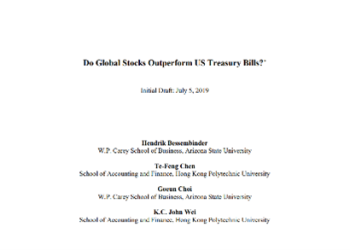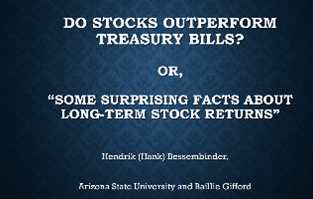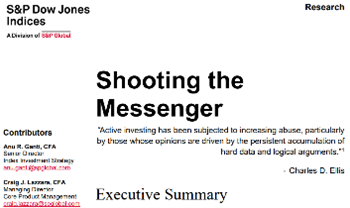This is the third time we have addressed this annual publication by Elroy Dimson, Paul Marsh & Mike Staunton, who published the world reference financial data book Triumph of the Optimists in 2000.
The 2020 edition had two special chapters, investments in ESG, and investment in emerging countries compared to more advanced economies.
The 2021 edition also had two special chapters, forecasts of stock and bond returns in the long term, and the returns of these assets in emerging economies and their comparison with advanced economies.
This summary of the publication contains three excerpts from the 2022 annual report.
The first excerpt describes the database used, which is at its core and covers all major asset categories in 35 countries (including three new markets this year).
Most of these markets, as well as the 90-country global index, have 122 years of data since 1900.
The second shows how stocks and bonds presented themselves during different inflation regimes and during periods of rising interest rates, two current concerns.
The third addresses the theme of the importance of diversification, both in number of securities and in international terms.
The core of the publication is the long-term database compiled by the authors, which covers investment yields in 32 countries over periods of up to 121 years.
This core makes this publication a unique benchmark in the long-term performance of financial markets, including stocks (e.g., the S&P 500 in the case of the U.S.), 10-year treasury bonds, treasury bills, inflation and currencies.
The performance of stocks and bonds in periods of inflation and rising interest rates
During periods of sharp decline in inflation, stocks provided real returns of 13.2%, considerably lower than bond returns of 19.1%.
In all other periods, stocks outperformed bonds, with an average annual premium on bonds of almost 7%.
During periods of sharp inflation, stocks provided real returns of -10.5%, considerably exceeding bond returns of -24.9%.
They concluded that, despite being hampered by high inflation, stocks were more resilient than bonds (note: do not forget that in this very long term we had periods of hyperinflation, particularly after the wars).
In the US, stocks provided an annualized real return of only 3.0% during periods of interest rate hikes, compared with 9.7% during rate falls.
U.S. bonds provided an annualized real return of just 0.2% on the interest rate hike, compared with 3.7% when rates fell.
In contrast, the actual returns of treasury bills were pretty much the same in both schemes.
They concluded that during interest rate hike cycles, it has historically been difficult to identify assets that perform well.
On average, periods of rising interest rates have been accompanied by lower returns, smaller rewards from many factor investment strategies, and lower price appreciation for a wide variety of real assets.
However, they found a relative performance of defensive versus cyclical stocks, and of large stocks compared to small capitalizations.
Stock and bond returns have been lower during periods of rising interest rates. But these were also periods of higher inflation.
Thus, it is not possible if these lower returns are due to inflation or rising interest rates.
Diversification in number of securities and in international terms
One of the main conclusions is that it takes more than 100 stocks to achieve reasonable diversification, much more than the 20 to 30 that many thought.
Thus, investors without the ability to predict stocks that provide higher market returns should invest in an index fund. At the other extreme, highly qualified individuals or fund managers should manage very concentrated portfolios, with up to about 10 to 20 stocks.
The study concludes that the benefits of global diversification are much greater for the more concentrated smaller markets and for the most volatile markets.
And that the benefits of international diversification for U.S. investors would not be as important.
The reason is that during the period analyzed, the U.S. is among the lowest risk countries in the world, the U.S. market dominated global stocks, and the size of the U.S. market ensured that the investment portfolio was already very well diversified.
Access here:
https://www.credit-suisse.com/about-us/en/reports-research/csri.html




















